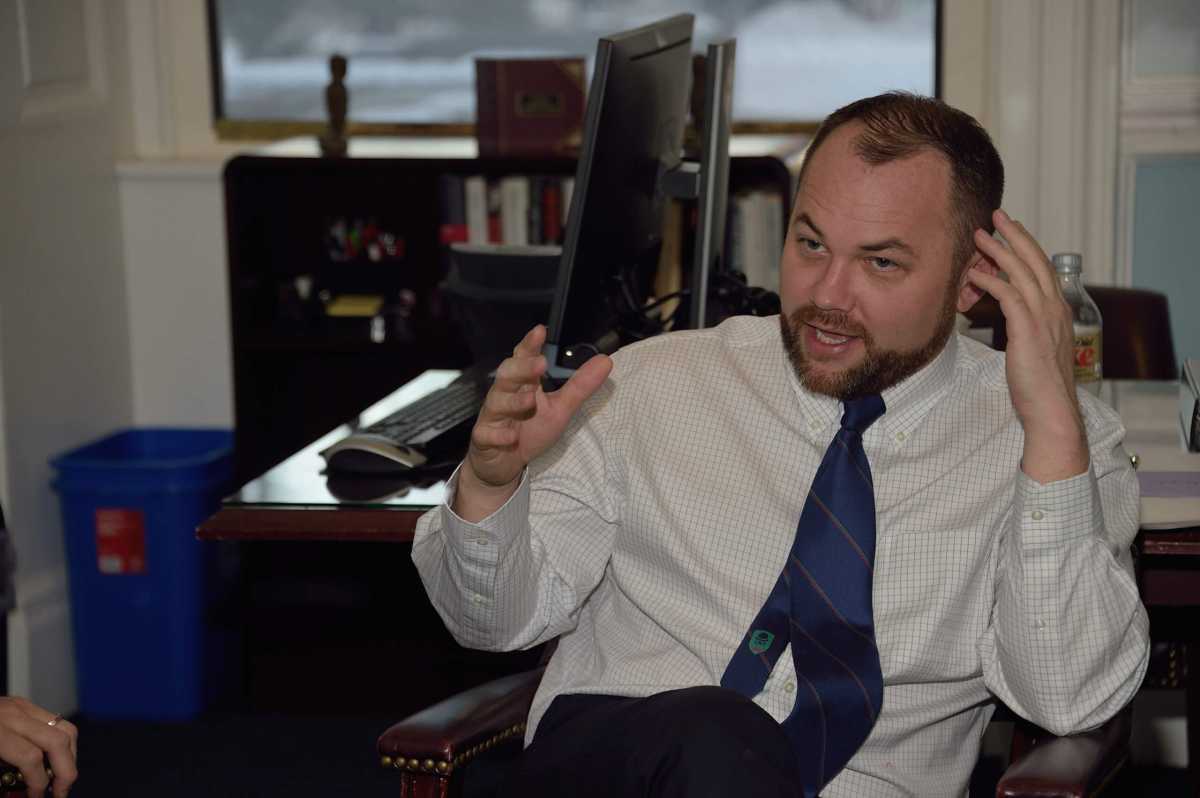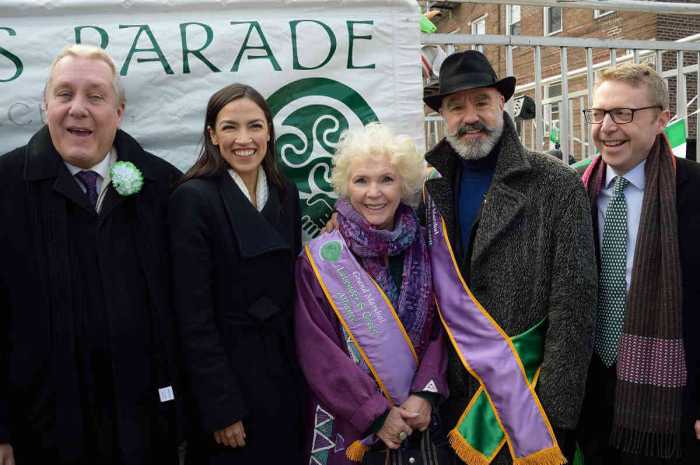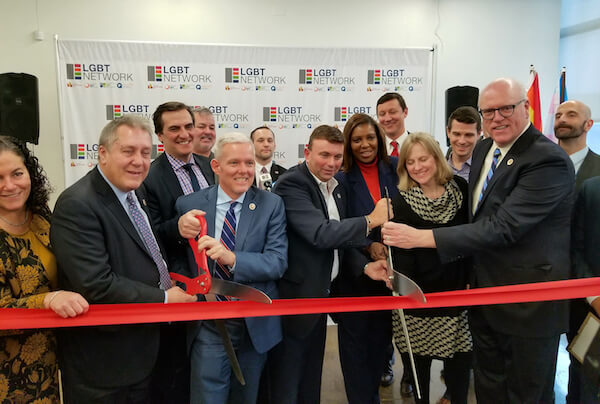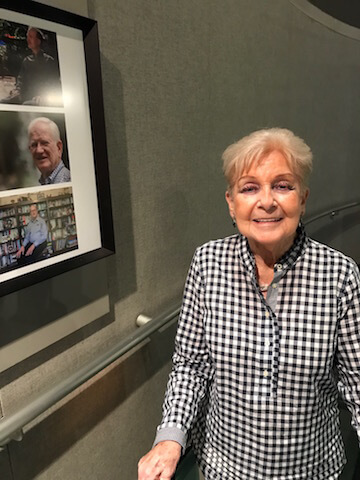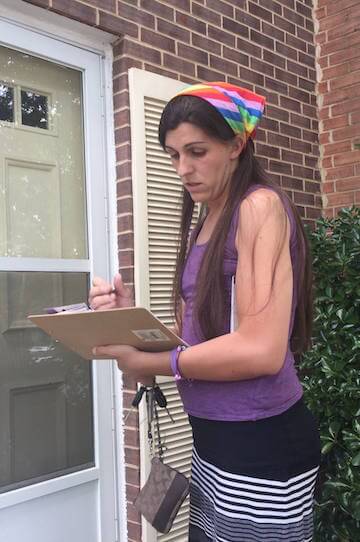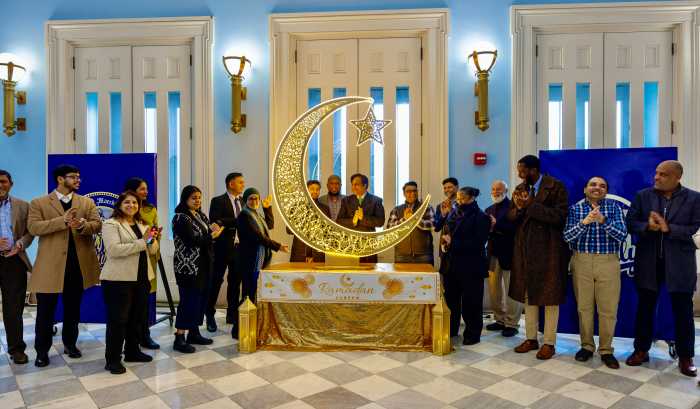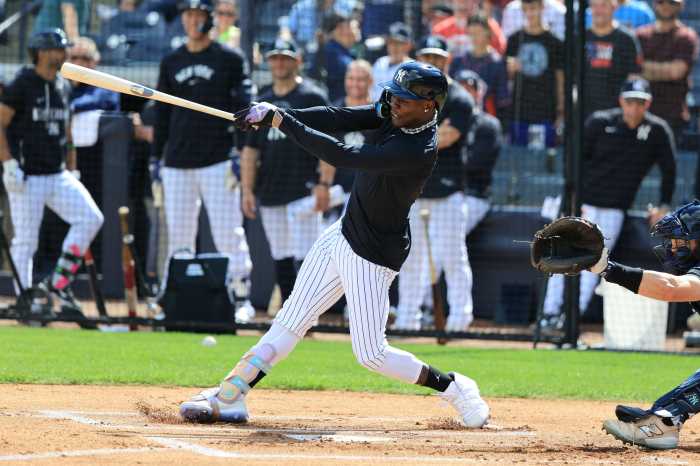Marking the end of acrimonious city budget negotiations, Mayor Bill de Blasio and the City Council held separate press conferences that presented very different views of the city’s $88.1 billion budget for the fiscal year that begins on July 1.
“It’s been a challenging, but very productive process,” the mayor said during his June 30 press conference. “I want to thank the City Council. I want to thank Speaker Corey Johnson, the members of the Council, the staff of the Council… Everyone worked really, really hard, literally around the clock, to get this done and to make sure this was a budget that was, of course, balanced.”
The budget has “very deep cuts to city agencies” and $1 billion “in labor savings” that are to be negotiated with the unions that represent city employees, the mayor said. If those savings are not achieved and the city does not get help from the state or the federal government, it will have to lay off 22,000 city employees on October 1.
“October 1 looms as the day we would have to put layoffs into effect,” the mayor said. “That is a last resort… We did have to put it in the budget because we had no other options.”
Separate press conferences, divided vote emphasized underlying tensions, especially about police funding
The mayor had hoped for a federal bailout, but that never materialized. More recently, he sought authority from the state to borrow money to fund operations. While the State Assembly was willing to approve that, the Senate would not agree. That left New York City with no choice but to find cuts to close gaps totaling $8 billion between the 2020 and 2021 fiscal years.
“So just in total, across all of the city agencies, it’s about a 1,600 headcount reduction, which totals $100 million annually, roughly from fiscal years ‘21 and out,” said Melanie Hartzog, the city’s budget director, when describing some significant reductions. “[The city’s Department of Education] had savings of $400 million over two fiscal years. Most of that is tied to remote learning and also taking a hiring freeze on central office functions, and then there are some programmatic impacts for instance, in the Department for the Aging.”
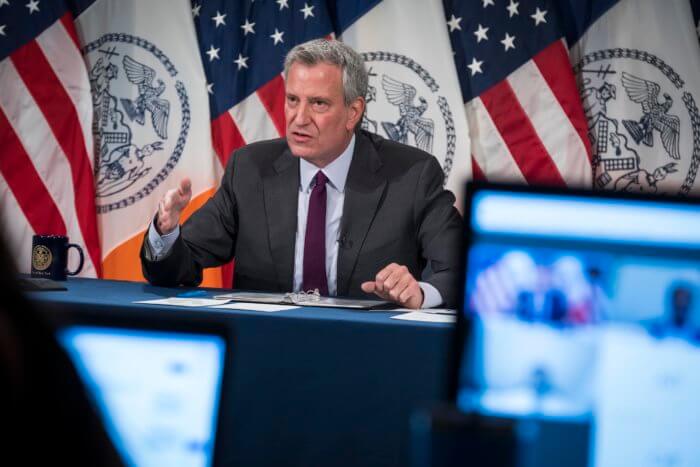
The city was also facing demands from activists that it cut the NYPD’s budget by $1 billion following the protests responding to the killing of George Floyd by Minneapolis police. Demands to #DefundNYPD, the hashtag around which the demands were focused, were being made prior to Floyd’s death, but they grew louder and more widespread during the protests. As the City Council vote on the budget was approaching on June 30, hundreds of people had effectively seized City Hall Park to demand the cuts.
The budget eliminates the July class of new police recruits and the April class was already cancelled, producing a 1,163 reduction in NYPD headcount. Some NYPD functions, such as school safety and street vendor enforcement, will be moved to other agencies. And the NYPD is expected to reduce overtime.
“The total uniform overtime budget for fiscal year 2021 was $523 million and we’re going down by $296 million,” Hartzog said.
While the mayor argued that the 2021 budget does make cuts to the NYPD budget, activists rejected that in tweets and media interviews, saying that the city had merely moved some costs to other agencies and not cut the police.
The mayor said the 2021 budget takes more than $500 million from the NYPD’s capital budget and uses $450 million to fund youth centers and programs to serve 100,000 youth this summer. Another $87 million will be spent on broadband access in NYCHA housing.
“So, this is real redistribution,” the mayor said. “This is taking resources and putting them where they’re needed most with a particular focus on our young people. And look, it fits what we’ve been trying to do for years, and it fits the fact that New York City has been leading the way for years in a vision of redistribution, a vision of focusing on young people, a vision of change and reform.”
A program aimed at providing training, job placement, and other workforce development initiatives for runaway and homeless queer youth that was slated to officially begin in July, however, was placed on the backburner due to cuts to the incoming budget, the mayor’s office confirmed to Gay City News on June 30.
At the City Council’s press conference, Johnson, who is gay and represents the West Village, Chelsea, and Hell’s Kitchen, said that the youth programs were in the budget because the Council demanded it.
“We were very, very far apart,” Johnson said of the negotiations. “They had zeroed out the youth programs… It was an exhausting, hard, tense negotiation in a way that I have never experienced before.”
The de Blasio administration’s first proposal on the NYPD cut was tiny, at $16 million.
“It is no secret that I was in favor of at least a $1 billion cut to the NYPD and this budget does not include that,” said Johnson. “The mayor did not want the cuts we wanted in the NYPD… This is not a perfect budget, it is a painful budget.”
Some city councilmembers oppose cutting the NYPD while others believe the final cuts are too small. Some members, including some whose districts have seen recent increases in shootings and murders, saw the matter as more complex than just reducing the NYPD’s budget.
“They want to be safe,” Vanessa Gibson said of the residents of her western Bronx district. “Many in my community have supported police and want police… They just want to be treated fairly.”
Councilmember Laurie Cumbo, who represents a Brooklyn district, agreed and noted that the NYPD has grown more diverse over time. Any cuts that might lead to layoffs would affect the most recent hires, which would include people of color, she said.
“We want to change a police department that sees their role as protecting white people from Black people,” Cumbo said. “How do we fundamentally change a system that has brutalized Black people for centuries? That is not about a dollar figure.”
Cumbo and Danny Dromm, who is gay and represents a Queens district, were the targets of protests supporting the $1 billion NYPD cut organized by a New York City chapter of the Democratic Socialists of America (DSA). The DSA protests took place outside the homes of the councilmembers. Johnson’s boyfriend was also targeted in his apartment by the protestors. The councilmembers were clearly angered by the protests.
The 2021 budget has cuts to Council initiatives, one shot funding, discretionary funding, and allocations that restored earlier cuts. Collectively, the funds for those four categories went from $1.1 billion to $700 million.
The 51-member City Council passed the budget on the evening of June 30 with 32 members supporting it and 17 opposed. Among the Council’s five out gay members, Johnson, Dromm, the chair of the Finance Committee, and Ritchie Torres, the apparent winner of last week’s Democratic primary for a US House of Representatives seat in the Bronx, voted yes. Carlos Menchaca of Brooklyn and Jimmy Van Bramer of Queens voted no.
Menchaca and Dromm had earlier argued with each other on Twitter about the significance of the cuts to the police. Van Bramer, meanwhile, also on Twitter, needled colleagues upset about activists showing up at their homes, displaying messages he’d received that morning on his doorstep emphasizing that Black Lives Matter.
“Now I know some elected REALLY don’t live home visits, but I appreciate the passion here & the righteous fight,” Van Bramer wrote.
In summarizing his own thoughts about the budget, Johnson, the speaker, at his press conference, said, “There are many things I am not happy about in this budget.”
Additional reporting by Matt Tracy. To sign up for the Gay City News email newsletter, visit gaycitynews.com/newsletter.

